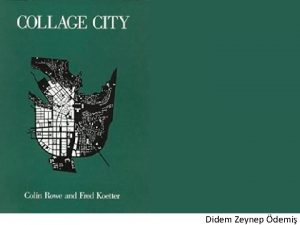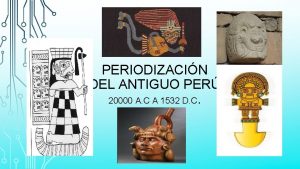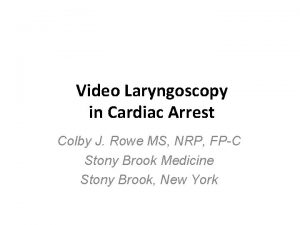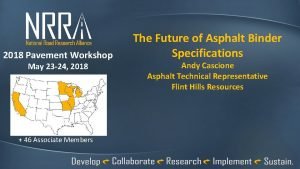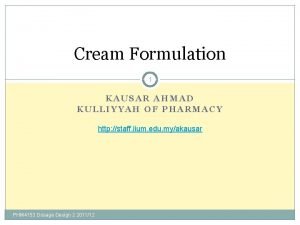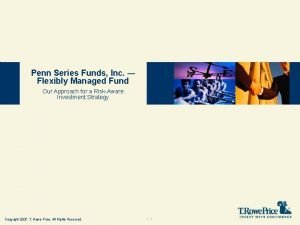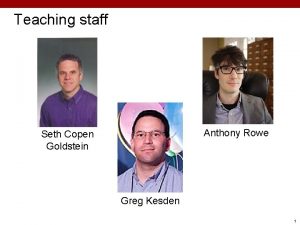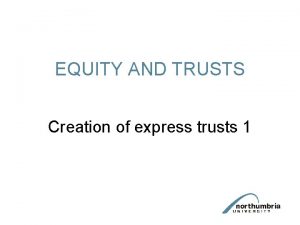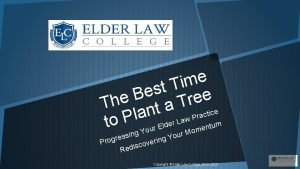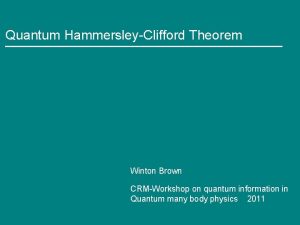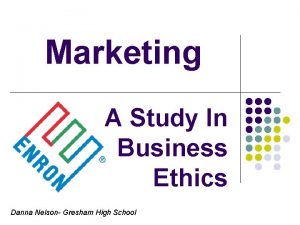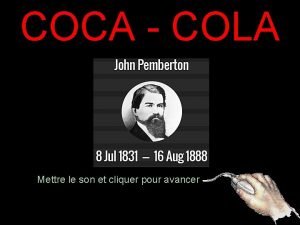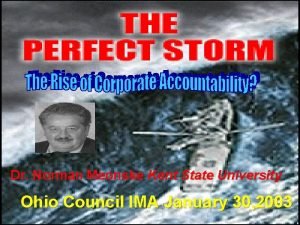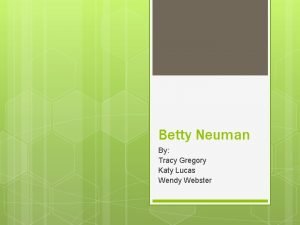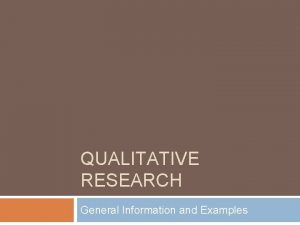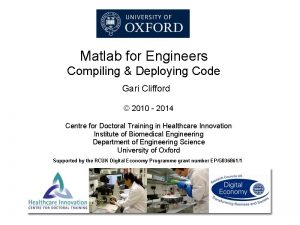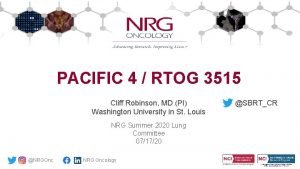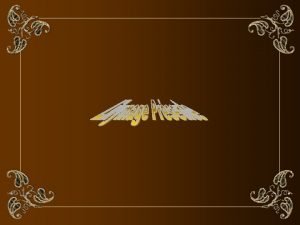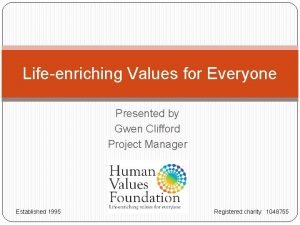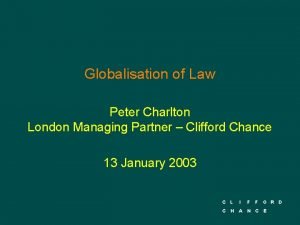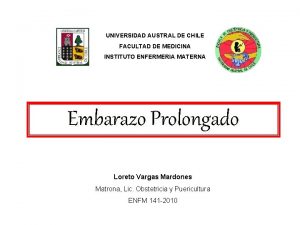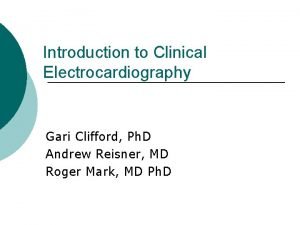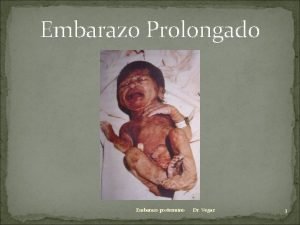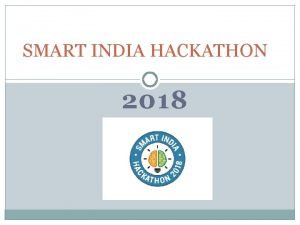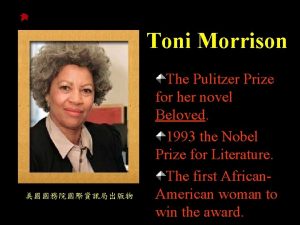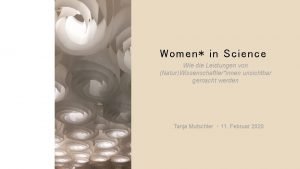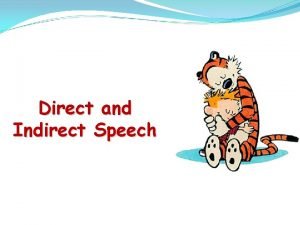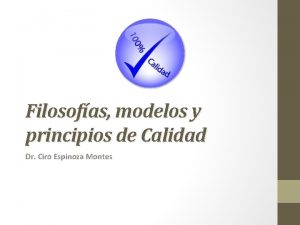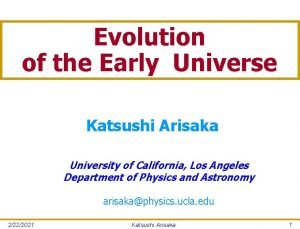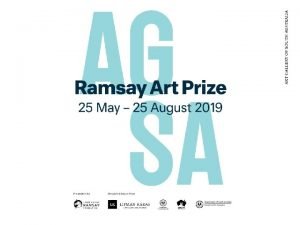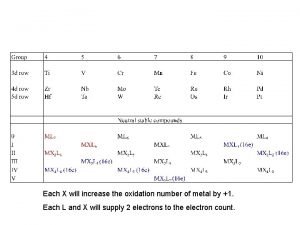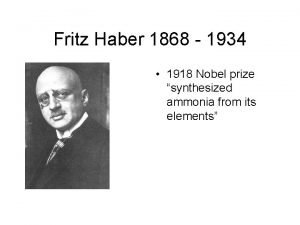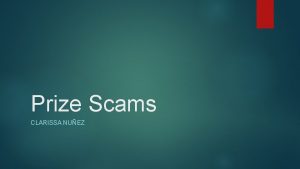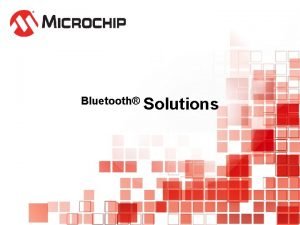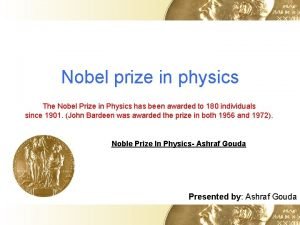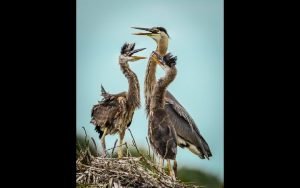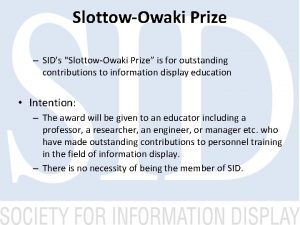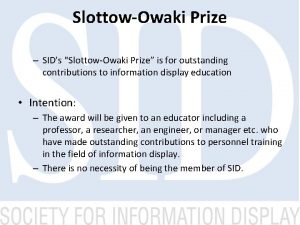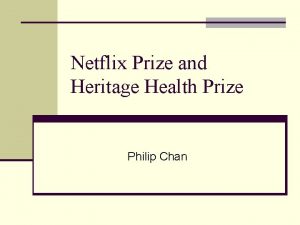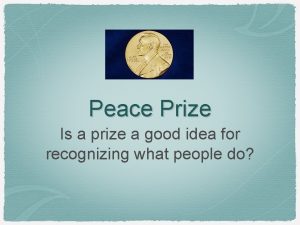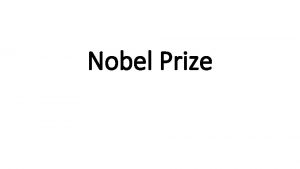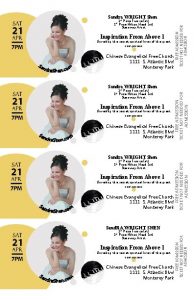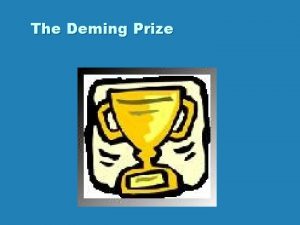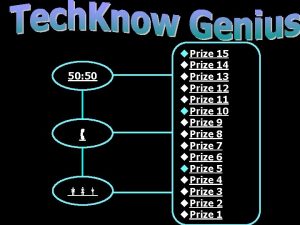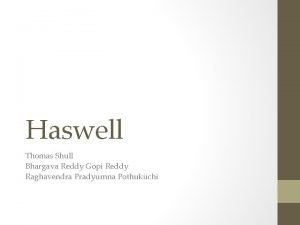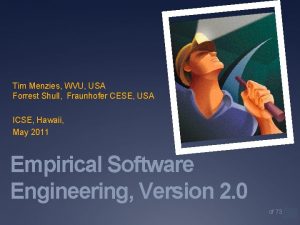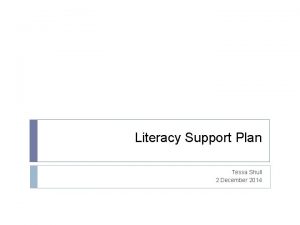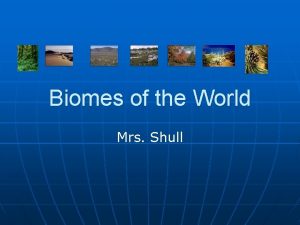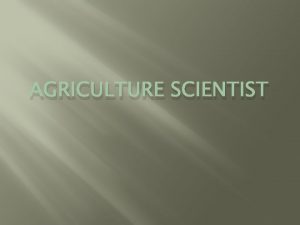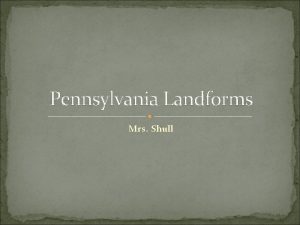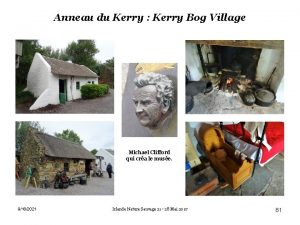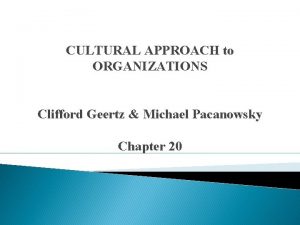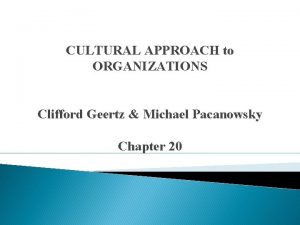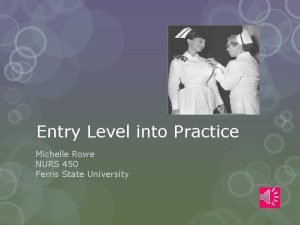The Clifford G Shull Prize J Michael Rowe






































- Slides: 38

The Clifford G. Shull Prize J. Michael Rowe ACNS, June 7, 2004

Early Oak Ridge Team Wally Koehler Mike Wilkinson Ernie Wollan Cliff Shull

Ralph Moon

Inveterate Committee Member • By a rough count, I have served on over 50 in the last 30 years, excluding workshops, Temple and Lehman reviews • Many for existing neutron sources – IPNS, LANSCE, HFIR, SNS, RRR • Some unfortunately less successful – ANS, HFBR, INER • Contrary to abstract, last mention…


B. N. Brockhouse & 3 -Axis

1962 -1966 • One of Bertram Brockhouse’s first three Ph. D students along with Eric Svensson and Sow Hsin Chen • Ph. D Theses were simpler then – Design and construction of 3 -axis spectrometer – Measure lattice dynamics of a metal – ß-Sn

Inelastic Scattering 1962

Mc. Master 2 and 3 -axis

1960’s Automation!

Lattice Dynamics of ß-Sn

Argonne National Laboratory • Post doctoral appointment in 1966, after meeting Jack Rush & Don Connor at HFBR criticality meeting – My first cold source (operate, not design), D 2 O ice – First TOF spectrometer (4 chopper system) – David Price joined ANL, and we began a series of measurements on α-Sn, In. Sb & Cd. Te at HFIR, working with Harold Smith and Bob Nicklow

Argonne National Laboratory II • David, Bob Kleb, George Ostrowski, & I built TNTOFS (LRMECS flight path) as part of CP-5 complex with Selmer Peterson & Jack Williams • Lot’s of fun with science – – – Liquid Ar (Kurt Sköld, Pete Randolph at MTR) Many molecular reorientations with Jack Rush Hydrides (Pd, Nb, Ta…) Cyanides (Susman, Hinks KCN, Na. CN) Aneesur Rahman

Assorted Results

TNTOFS

Serendipity & Liquids • Kurt Sköld was post-doc – Liquid argon Coherent & Incoherent (MTR) • Aneesur Rahman – “RAD Terminal” across from my office – Anees & I got to know each other – Liquid Rb MD & Experiment (John Copley) • MD predicted collective excitations at low Q • We measured them at TNTOFS (after I left)

Liquids

ZING-P Building


NBS 1973 -1979 • Came to NBS in 1973, with promise from Jack Rush – NO MANAGEMENT • Began design of BT-4 triple-axis with Jack Rush, Sam Trevino and Hank Prask in 1972 • Decided on Ames design, went to inspect, and met Nancy Chesser (m 1/1/75) • Bought drum from Ames, and installed at NBSR 1973 -1975

BT-4 Triple Axis

NBS 1973 -1979 • Mostly science after BT-4 – Structure and dynamics KCN, Na. CN, Rb. CN, Cs. CN • Soft TA mode • Quadrupolar, dipolar phase transitions • Steric hindrance, strain scattering – Mixed alkali halide/alkali cyanides, quadrupole glass state • Metal hydrides – Pd. H, Pd. D, Pd. T dynamics (old high Tc days) – Ta, Nb, Ce. D 2. 12, trapping, storage hydrides…

Science Results P d 0. 6 Pd. D T Pd. T 0. 6

NBS 1980 -87 • First NBS “Competence Project” in 1979 – Built 8 m SANS (Charlie Glinka on staff) – Started our first real visualization effort & first fast network (Norm Berk, “Roger Ramjet”) • • • IMSE crosscut circa 1983, CNRF proposal Seitz-Eastman 1984 First $1. 5 M in FY 1985 D 2 O ice cold source installed 1987 Construction funding FY 1987

CNRF Estimate

Management Days 1987 -2004 • Began construction of guide hall in fall of 1987 – Ivan Schroder & I became construction managers • Dedicated guide hall January 1989 • CHRNS partnership with NSF started 1989 – Originally 30 m SANS, ½ SPINS – Now includes 7 instruments in shared program

Research Participants

Management Days 1987 -2004 • All planned instruments operating, time to start recycling, replacing… • Installed 2 nd Generation hydrogen source in 2000 (Bob Williams and Paul Kopetka were my partners in both sources) – Factor of two gain for most wavelengths – 100% reliability last year • Submitted license renewal application 4/9/2004 • Division Chief 1989; Center Director 1997; Retired March 2004

Three Who Made it Possible Carl Muehlhause Bob Carter Harry Landon

Cliff Visits the NCNR

Triple Axis Developments

Lessons? • Be lucky! – Thesis advisor (the world came to BNB) – Room assignment (A. Rahman) – Choose instruments well (meet spouse) – Work with outstanding people at great places (far too many to mention) • All decisions are temporary (“no management”)

Conclusions? • Bert always said that an experimentalist has to get the data right, and should err in interpretation if anywhere. • Therefore, I want to spend a little time on my thoughts and predictions for the future. • These are personal, and subject to Bert’s dictum.

Trends • In my 42 years, sources only increased in flux by approximately x 10 (NRU to HFBR, HFIR) • Capabilities increased by x 100 to x 1000 – Detectors (number, solid angle) – Instrument designs (Spin echo, HFBS…) – Monochromator design (PG, bent crystals, horizontal and vertical focussing) – Neutron guides (regular, 58 Ni, supermirror, ballistic…) – Sample Environment (Stress, P, T, H…) • Pulsed sources (ZING-P IPNS ISIS SNS) – 3 x 104 allowing qualitative changes in techniques • Facility use evolved from 95% professional NS 20%; community has grown

Gen Shirane 80 Birthday July 15, 2004

Source Development

Future • Techniques will continue to improve. – Existing sources not fully exploited – SNS opens new opportunities • IT will transform the user experience – 1966 PDP-8; 1973 PDP-11; 1980 VAX; 2000 Beowulf clusters; 2010 ? – Facilities world-wide will agree on standard user interfaces – Data analysis will be real time (models, simulations…), allowing science to be the focus – Remote access will grow, in spite of firewalls and other security issues

Future II • Budget situation in US is tight, and will get worse; it will then get better! • Science drives everything – Funding of current sources (including SNS) depends on scientific and engineering output – Current users must help make case – Any new source will only be considered when the science REQUIRES it • Personally, I intend to participate, because it will be fun.
 Frederick rowe
Frederick rowe Georgina girl interrupted
Georgina girl interrupted Dr philip parr
Dr philip parr Horizontes e intermedios john rowe
Horizontes e intermedios john rowe Glottiscope
Glottiscope Nchrp 23-24
Nchrp 23-24 Handbook of pharmaceutical excipients
Handbook of pharmaceutical excipients T rowe price flexibly managed
T rowe price flexibly managed Introducing phonetics and phonology answer key
Introducing phonetics and phonology answer key Cmu autolab
Cmu autolab Rowe v prance
Rowe v prance Va form 21p-0969 income and asset statement
Va form 21p-0969 income and asset statement Crmworkshop
Crmworkshop Commercial tire inspection
Commercial tire inspection Enron players
Enron players Charles ney pemberton
Charles ney pemberton Cliff baxter note
Cliff baxter note Clifford neuman rate my professor
Clifford neuman rate my professor Thick description
Thick description Gari clifford
Gari clifford Clifford sifton open door policy
Clifford sifton open door policy Clifford robinson md
Clifford robinson md Stephen j poplawski
Stephen j poplawski Cliff baxter
Cliff baxter Gwen clifford
Gwen clifford Peter charlton clifford chance
Peter charlton clifford chance Síndrome de postmadurez de clifford
Síndrome de postmadurez de clifford Gari clifford
Gari clifford Clifford materials reactivity testing
Clifford materials reactivity testing Clifford postermino
Clifford postermino Techyons
Techyons Toni morrison pulitzer prize
Toni morrison pulitzer prize Katie bouman nobel prize
Katie bouman nobel prize Must reported speech
Must reported speech Modelo de malcolm baldrige y sus 7 principios
Modelo de malcolm baldrige y sus 7 principios Katsushi arisaka nobel prize
Katsushi arisaka nobel prize Ramsay art prize
Ramsay art prize Oxidation number of nh2
Oxidation number of nh2 1918 nobel prize winners
1918 nobel prize winners
